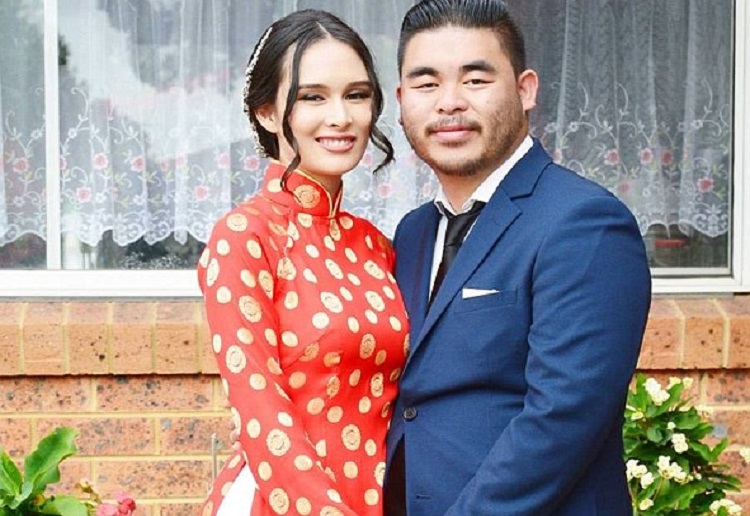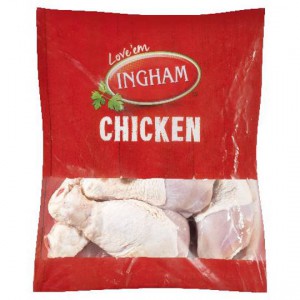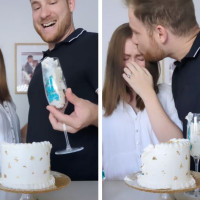When unborn children are killed, how does the law deal with culpability?
Katherine Hoang and her unborn twins were killed in the Orchard Hills crash. Her husband, Bronco Hoang, remains in hospital.
If a pregnant woman is the victim of a criminal offence that leads to the death of her unborn child, should the person responsible be charged with the murder or manslaughter of that child?
This is the question being asked following the tragic Orchard Hills car crash last week. The crash killed Katherine Hoang, her unborn twin boys, and her 17-year-old sister-in-law Anh Hoang, also known as Belinda. Katherine’s husband Bronco Hoang is in an induced coma in hospital.
Police have charged the driver of the other car with ten separate offences, including two counts of manslaughter.
However, the family of Katherine Hoang, who was reportedly due to give birth this week, have called for manslaughter charges to also be laid with respect to the unborn twins, saying “these babies were already part of the family”.
What laws apply when unborn children are killed?
What criminal charges might apply when an unborn child is killed following a car crash or criminal assault is a complex legal question. In New South Wales, the “born alive rule” applies. This is a common law rule that states that a homicide can only be committed on a legally recognised person, and that a person is not legally recognised until they are “fully born in a living state”.
That means they must have completely left their mother’s body and must show some indication of independent life. Under this definition, an unborn child killed in utero is not a legal person and cannot be the victim of a homicide.
This would mean that manslaughter charges could not be laid with respect to the unborn twins of Katherine Hoang, unless there was evidence they had been born alive.
Instead, the loss is considered an extension of the injury suffered by the mother. In a 2005 appeal considering the “born alive rule”, the NSW Chief Justice suggested there was a strong case for abandoning this rule, on the basis that it was “anachronistic” and “adopts an artificial and non-scientific concept of when life begins”.
The legal position across Australia
The legal position is not uniform across Australia. Even within individual states there are a range of different offences that could potentially apply in this type of case.
Queensland introduced specific foetal homicide laws in 1997. If the Orchard Hills crash had occurred in Queensland, the driver could be charged with the separate offence of killing an unborn child, which carries a maximum penalty of life imprisonment.
In Western Australia, Queensland and the Northern Territory , there is also a separate offence of “killing an unborn child” that applies “when a woman is about to be delivered of a child”. A similar offence of “child destruction” applies in the Australian Capital Territory. These offences are generally understood to have a restrictive application, in that they will only apply when the birth is imminent or delivery has actually commenced.
A number of jurisdictions have attempted to deal with offences involving harm to an unborn child by expanding their legal definitions of harm. For example, Western Australia introduced reforms in 2016 to amend the definitions of “bodily harm” and “grievous bodily harm” to expressly include harm caused to an unborn child.
Similar provisions exist in New South Wales, Victoria and the ACT. Under these provisions, the loss of unborn children would be seen as part of the overall injuries sustained by the mother, rather than being reflected in separate charges.
Should NSW introduce foetal homicide laws?
Foetal homicide laws have been debated in NSW parliament a number of times in recent years. Zoe’s Law was introduced for debate in 2013 following the case of Brodie Donegan, who lost her unborn baby Zoe after being hit by a drug-affected driver while 32 weeks pregnant. The loss of Zoe was charged only as part of the injuries sustained by her mother. Brodie Donegan described the failure to separately recognise the death of her baby as a gap that “should be filled” as “to me, she was more important than my injuries”.
Zoe’s Law has been introduced to the NSW parliament a number of times. It was passed by the Legislative Assembly in 2013 but lapsed before debate in the Legislative Council. It was reintroduced as a Private Member’s Bill in March 2017, with debate being adjourned in October 2017.
A key reason for supporting foetal homicide laws is a belief that the law should recognise the loss of an unborn child in these circumstances as a separate and distinct loss, and more than just an injury suffered by a pregnant woman.
The key concern raised by opponents is that foetal homicide laws recognise an unborn child as having a separate legal identity to its mother, with potential implications for abortion laws and the legal rights of pregnant women.
These are important considerations, but the issues are not inevitably interlinked. For example, an argument that Queensland foetal homicide laws gave rise to an expanded concept of legal personhood (with implications for laws concerning abortion) was described as ‘without foundation’ by the Queensland courts in 2010.
In any event, a foetal homicide law can be carefully drafted so that it has no broader implications for either abortion or the legal rights of pregnant women. This can be as simple as including in the law, for the avoidance of doubt, a sub-section that expressly limits any concept of legal personhood to the terms of the specific provision and that confirms that the foetal homicide law does not apply to cases of lawful abortions.
Recent events show the need for this reform to be considered. The family of Katherine Hoang is tragically grieving the loss of not just two family members, but four. The fact that the law does not fully recognise this loss is simply unjust.![]()
Lorraine Finlay, Lecturer in Law
This article is republished from The Conversation under a Creative Commons license. Read the original article.
We may get commissions for purchases made using links in this post. Learn more.




















-

-
-
-
mom81879 said
- 16 Nov 2018
Reply
-

-
-
-
curlytops said
- 07 Oct 2018
Reply
-

-
-
-
MuthaNita said
- 05 Oct 2018
Reply
-

-
-
-
mom81879 said
- 05 Oct 2018
Reply
-

-
-
-
Ellen said
- 05 Oct 2018

Reply
-

-
-
-
mom206279 said
- 04 Oct 2018
Reply
-

-
-
-
ashna9 said
- 04 Oct 2018
Reply
-

-
-
-
BellaB said
- 04 Oct 2018
Reply
-

-
-
-
Cookfromscratchmum said
- 04 Oct 2018
Reply
-

-
-
-
mom114371 said
- 04 Oct 2018
Reply
-

-
-
-
mom265671 said
- 04 Oct 2018
Reply
Post a comment9:05 am
2:20 pm
5:43 pm
12:30 pm
3:34 am
9:24 pm
7:54 pm
7:18 pm
7:05 pm
5:09 pm
4:11 pm